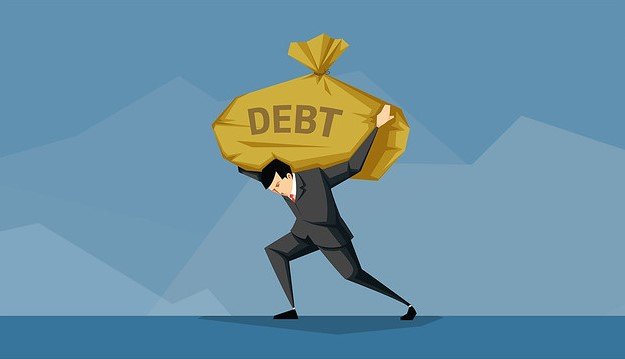
How Your Financial Past Can Ruin Your Financial Future and What to Do About It
Introduction: Understanding the Impact of Financial History
Grasping the significance of your financial past is essential in guiding your journey towards financial stability and independence. Our past financial behaviors and decisions lay the groundwork for the current state of our personal finance and can be the compass directing our financial future. Managing money, addressing debt, and developing a sound budget are all steps that hinge on a clear understanding of previous financial habits.
Your financial history, encompassing aspects such as your success at saving, utilization of credit cards, and past investment decisions, forms the backbone of your practical financial knowledge. Poor money management or unrestrained spending in the past can lead to adverse outcomes, such as unmanageable debt and a tarnished credit history. These, in turn, can create barriers when you aim to start new financial ventures or apply for credit in the future.
In this blog post, we will delve into several critical areas that highlight how your financial past affects your future. Firstly, the role of consistent saving and its long-term benefits in securing financial stability will be examined. We will also look at how debt, if not handled prudently, can be a persisting obstacle. Another crucial aspect is understanding your credit card usage and its influence on your credit score, which can either open or close financial doors down the line.
Investing early and wisely is another pillar of future financial health, as it requires not only initial capital but also the knowledge gained from past financial decisions. We will explore how personal discipline, and timely financial decisions can either facilitate or hinder financial independence. Our objective is to offer insights and actionable steps to let you learn from your past and better plan for your financial future. Join us in understanding the full scope of your financial history’s impact and how to begin taking control of your financial destiny today.

The Dangers of Poor Financial Habits
Poor financial habits, such as overspending, failing to budget, and impulsive buying, can have significant long-term repercussions on your financial well-being. These habits often result in accumulating debt and living paycheck-to-paycheck, making it challenging to achieve financial independence. According to a 2019 survey by CareerBuilder, approximately 78% of American workers live paycheck-to-paycheck. This alarming statistic underscores how widespread poor financial practices can be.
Overspending is a common issue that many individuals face. It’s easy to swipe a credit card without considering the consequences, but consistently spending more than you earn can quickly lead to high-interest debt. The Federal Reserve reports that the average American household carries a credit card balance of $6,270. This debt can hamper your ability to save money, invest, or prepare for financial emergencies.
Another critical aspect of personal finance is budgeting. Without a clear and realistic budget, it’s difficult to track your spending and ensure that you’re living within your means. A study by U.S. Bank found that only 41% of Americans use a budget. Without this financial roadmap, you risk overspending and failing to meet your financial goals. Implementing a disciplined budgeting strategy can help you allocate funds appropriately, save for the future, and reduce financial stress.
Impulsive buying further compounds these issues. The instant gratification of purchasing non-essential items can leave you with insufficient funds for essential expenses. This behavior often leads to a cycle of debt, making it harder to break free. Research conducted by Slickdeals revealed that Americans spend an average of $5,400 annually on impulse purchases.
By understanding and addressing these detrimental financial behaviors, you can begin to foster healthier habits. Learning to budget, control spending, and prioritize saving can significantly improve your financial health and future stability. Recognizing the pitfalls of poor financial habits is the first step toward achieving long-term financial security.
(Additional eBooks are Available in the Freedom Funds Hub Shop)
The Long-Term Consequences of Debt
Debt, whether it originates from credit cards, loans, or other financial obligations, can present profound long-term consequences on personal finance if not managed wisely. The impact of high-interest rates cannot be overstated. Credit card debt, in particular, tends to carry exorbitant interest rates, sometimes upwards of 20% annually. Such rates exponentially increase the total amount owed over time, making it significantly more challenging to pay off large debts and achieve financial independence.
One of the primary difficulties in addressing sizable debts is the snowball effect of compound interest. Consider a credit card debt of $10,000 at an interest rate of 18%. If only minimum payments are made, it could take decades to pay off, all the while accruing additional interest charges. This creates a perpetual cycle where you may find yourself paying more in interest than on the principal amount, thus delaying your ability to save effectively for future milestones such as buying a house or planning for retirement.
Debt can heavily impede your capacity to allocate funds toward savings and investments. For example, an individual allocating a substantial portion of their monthly budget to debt repayments may find it difficult to set aside money for emergency savings or investment opportunities. This financial strain not only affects immediate financial stability but can also hinder long-term goals. Without adequate savings or investments, achieving financial milestones such as homeownership or retiring comfortably becomes significantly more challenging.
Moreover, long-term debt can negatively impact your credit score. A poor credit score results in higher interest rates on loans and credit cards, further exacerbating the cycle of debt. It can also limit opportunities, such as obtaining favorable terms on a mortgage or securing certain types of employment where credit checks are performed. Ultimately, recognizing the long-term consequences of debt and taking proactive measures to manage it can pave the way for a more secure financial future. Learn how to deal with debt to prevent it from derailing your long-term plans and goals.

Understanding Credit Scores and Their Impact
Credit scores serve as a fundamental element in personal finance, reflecting the individual’s creditworthiness based on their historical financial behavior. Lenders, landlords, and even potential employers frequently scrutinize these scores to gauge risk levels. A low credit score can stem from various factors, including missed payments, high credit card balances, and defaulted loans. Such a score can have far-reaching consequences, potentially leading to higher interest rates on loans and credit cards, limited access to new credit, and even diminished employment opportunities.
High interest rates, for instance, significantly inflate the cost of borrowing. This additional expense can further strain your budget, creating a cycle that makes it increasingly difficult to pay off existing debt. Furthermore, those with poor credit scores might face challenges in securing affordable housing or even certain types of employment. Many companies conduct credit checks during the hiring process, especially for positions involving financial responsibilities, thus underscoring the importance of maintaining a respectable credit profile.
Improving and maintaining a good credit score is achievable through mindful actions. Start by consistently paying your bills on time, as payment history heavily influences your score. Reduce your debt-to-income ratio by paying down existing debts and refraining from maxing out your credit cards. Diversify your credit portfolio by responsible management of both installment loans and revolving credit. Avoid closing old accounts hurriedly, as the length of your credit history is another pivotal factor.
Monitoring your credit report regularly is also crucial. It allows you to identify and dispute any inaccuracies, which, if corrected, could improve your score. Many financial institutions and credit bureaus provide access to free or low-cost credit monitoring services. Institute these practices today to foster a healthier financial future and prevent your past financial mistakes from hindering you.
(Additional eBooks are Available in the Freedom Funds Hub Shop)
The Psychological Effects of Financial Stress
Financial stress can have profound psychological effects that extend far beyond the realm of personal finance. The continuous pressure of managing debts, saving money, and maintaining a budget can significantly impact an individual’s mental health. Financial worries are often at the root of anxiety and depression, affecting one’s ability to function effectively on a daily basis. Constantly worrying about money can lead to sleep disturbances, a lack of focus, and a persistent sense of dread and hopelessness.
Moreover, the stress associated with financial difficulties can strain relationships. Disagreements about money are a common source of tension between partners and can lead to feelings of resentment and emotional disconnect. This strain isn’t limited to romantic relationships; friendships and family dynamics can suffer as well, particularly when financial support or advice is sought or expected.
The overwhelming nature of financial stress can also reduce an individual’s overall quality of life. Activities that were once enjoyable may become sources of guilt or anxiety if they incur expenses. It can turn into a never-ending cycle where financial anxiety hampers one’s ability to make sound financial decisions, thereby exacerbating the problem. This cycle underscores the importance of addressing financial issues from a holistic standpoint, incorporating mental health considerations into the approach.
Recognizing financial stress as a legitimate mental health issue is a crucial step toward creating effective solutions. It’s not just about managing debt or finding better ways to save money; it’s about taking care of yourself holistically. Seeking professional help, such as financial counseling and mental health therapy, can be invaluable. Building a support network of understanding friends and family can also provide emotional sustenance during challenging times. By addressing both the practical and emotional aspects of financial stress, you can create a more balanced and sustainable path towards financial stability and overall well-being.
Rebuilding your financial future is a crucial process that requires discipline, strategic planning, and continuous effort. The first step is to create a comprehensive budget. Start by assessing your current financial situation, listing all your income sources, and detailing your monthly expenses. This approach helps you to recognize areas where you can save money and allocate your resources more effectively.
Once your budget is in place, cut unnecessary expenses. Review your spending habits critically, and identify costs that do not add significant value to your life. This may involve canceling subscriptions you rarely use or cutting back on dining out. Every bit of money saved can be redirected towards more pressing financial obligations or investments.
Seeking professional financial advice can also be beneficial. A financial advisor can provide tailored strategies to manage debt, increase savings, and grow your investments. They can help you make informed decisions that align with your financial goals and risk tolerance. This expert guidance is particularly useful if you’re navigating complex financial situations or planning for long-term objectives like retirement.

Another essential step is to create an emergency fund. Aim to save at least three to six months’ worth of living expenses in a readily accessible account. This fund acts as a financial safety net, helping you manage unexpected expenses without resorting to credit card debt or personal loans. Consistently contributing to this fund solidifies your financial resilience over time.
Setting realistic and achievable financial goals is fundamental to staying motivated and committed. Break down your long-term objectives into smaller, manageable milestones. Whether it’s paying off a significant portion of debt or saving for a down payment on a house, celebrate each milestone to keep your momentum going. Tracking your progress regularly ensures that you stay on course and can make necessary adjustments to your strategies.
Ultimately, the key to rebuilding your financial future is to start today. Make informed decisions, stay dedicated to your goals, and continuously educate yourself on personal finance best practices. By taking these steps, you empower yourself to achieve financial independence and secure a stable future.
The Role of Financial Education
Understanding the intricacies of money management and personal finance can be pivotal in securing a stable financial future. A lack of financial literacy often results in poor financial decisions, such as the misuse of credit cards, improper budgeting, and unwise investing, which can compound over time, leading to long-term debt and financial instability. Therefore, acquiring a solid foundation in financial education is essential for making informed decisions and avoiding detrimental financial pitfalls.
Financial literacy encompasses a wide array of topics including, but not limited to, budgeting, saving, investing, and debt management. By mastering these concepts, individuals can craft effective budgets, optimize their savings, and develop strategies for reducing debt. Enhanced financial acumen leads to better timing in investments and prudent use of credit card facilities, thus steering individuals away from common financial traps.
To improve financial literacy, one can access a multitude of resources. Books such as “Rich Dad Poor Dad” by Robert Kiyosaki and “The Total Money Makeover” by Dave Ramsey provide foundational knowledge and practical advice. Online platforms like Coursera and Khan Academy offer free and paid courses that cover various aspects of personal finance. Additionally, attending seminars and workshops run by financial experts can offer hands-on learning experiences and direct access to sound financial advice.
The long-term benefits of financial education are profound. With a firm understanding of financial concepts, individuals can make more informed decisions, such as discerning the best saving and investing strategies, timing major financial moves correctly, and understanding the true cost of debt. This education empowers people to achieve financial independence and avoid the mistakes of their past, setting a solid groundwork for their financial future.
By prioritizing financial education, individuals can learn to navigate the complexities of personal finance effectively. It is never too late to start; the knowledge gained today can safeguard against future financial uncertainties, fostering a more secure and prosperous financial future.
(Additional eBooks are Available in the Freedom Funds Hub Shop)
Conclusion: Learning from the Past to Build a Better Future
Reflecting on the discussed themes, it becomes evident that our financial past has a profound impact on our financial future. Missteps, such as accruing debt, neglecting to save, or relying heavily on credit cards, can indeed hamper one’s financial independence. However, these setbacks need not dictate the trajectory of your financial journey. With deliberate planning, education, and a strategic approach, it is possible to redirect the course toward financial stability.
The first step in this transformative journey is acknowledging the lessons from your financial past. Understanding past mistakes, such as overlooking the importance of a budget or failing to prioritize saving, can provide invaluable insights. This awareness is crucial for identifying and rectifying detrimental financial habits. Crafting a thoughtful budget, for instance, can serve as a roadmap, guiding your spending and saving decisions. Investing time in financial education can further empower you, enabling informed decisions aimed at securing a stable future.
Taking actionable steps toward financial prosperity involves setting clear, achievable goals. Begin with small, manageable steps today, such as establishing an emergency fund, setting aside a portion of your income for savings, or reducing debt incrementally. Creating a robust plan and adhering to it diligently can significantly enhance your financial resilience. Recognizing the significance of timing is also essential; the sooner you start, the more you can leverage compounding benefits, particularly in investments.
Moreover, it is vital to maintain a balanced perspective. While learning from the past is crucial, it is equally important not to dwell on past mistakes excessively. Instead, focus on the present and future, and remain committed to continuous improvement in managing your personal finances. Financial independence, though challenging, is attainable with consistent effort and a proactive mindset.
In summary, while our financial past can pose challenges, it does not have to determine our financial future. Through mindful planning, education, and a commitment to change, you can build a more secure and prosperous future. Embrace this opportunity to redefine your financial path and take actionable steps today for a better tomorrow.
M1 Finance is offering up to $100 when you open an account and deposit any amount of money today! Click the link to Start Your Financial Freedom: http://bit.ly/48I8v9c

Average Rating